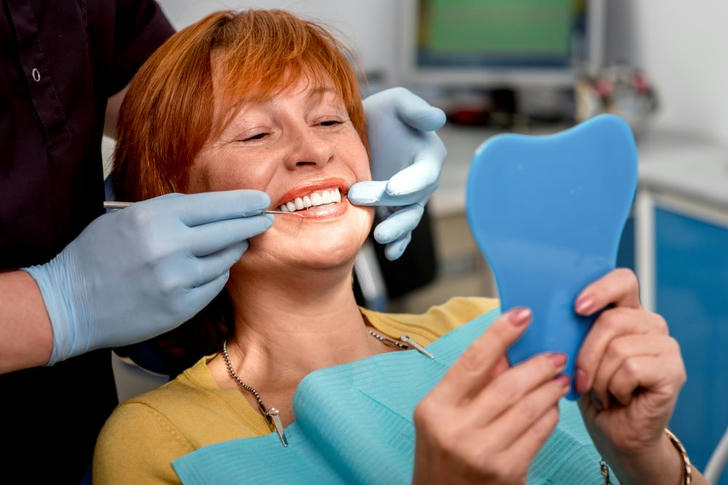How to choose dental implants for the elderly
Dental implants represent a revolutionary solution for missing teeth, offering Very good stability and natural aesthetics. However, understanding the financial investment is crucial. This guide breaks down costs, savings options, clinic choices for seniors, and essential maintenance.
Introduction to the Cost of Dental Implants
Dental implants typically range from $1,500 to $6,000+ per tooth in the U.S. While more expensive than bridges or dentures initially, their longevity (20+ years) and bone-preserving benefits make them a cost-effective long-term solution. Prices vary widely based on location, materials, and clinical expertise.
Key Factors Affecting Cost
Implant Brand & Origin
- Premium (Swiss/German): High-precision, extensive research (e.g., Straumann, Nobel Biocare).
- Value (Korean/Israeli): Reliable quality at lower cost (e.g., Osstem, AB Dental).
- Budget (Local Brands): Emerging options with significant savings.
Abutment & Crown Material
- Zirconia crowns ($$$): Metal-free, highly aesthetic.
- Porcelain-fused-to-metal ($$): Durable but may show gum lines.
- Custom abutments vs. stock parts.
Surgical Complexity
- Bone grafting/sinus lifts ($800–$3,000+ extra).
- Full-arch solutions (e.g., All-on-4®: $15,000–$30,000 per arch).
Clinic Expertise & Location
- Specialist surgeons (periodontists/oral surgeons) often charge more than general dentists.
- Urban centers (NYC, London, Shanghai) cost 20–40% more than rural areas.

Where Can You Find Dental Implant Grants To Help With the Cost?
There are a variety of dental implant support options available to those seeking dental care. The federal government, private foundations, and local governments often provide partial support to eligible applicants. The support you can receive varies depending on the specific grant program
- Government support for dental implants
Federal support programs such as Medicaid , Medicare, and the Children’s Health Insurance Program (CHIP) may be able to cover part of the cost of a dental implant treatment plan.
- Dental support in Pennsylvania
These are support from the state government and also local dental clinics. The Pennsylvania Department of Human Services (DHS) and the Office of Medical Assistance Programs (OMAP) offer assistance to qualified applicants who need help paying for cosmetic dentistry treatments.
- Dental grants at Penn Dental Medicine
As a teaching institution, the University of Pennsylvania School of Dental Medicine offers a variety of services at affordable prices. In addition, the Dental Implant Subsidy Program provides an affordable solution for patients to obtain dentures at a significantly reduced cost:
- Astra Grant
Individuals who need a single tooth replacement may be eligible for the Astra grant. This is when you have only lost one tooth and would like to replace it with a dental implant.
- Noble Grant
Individuals who need a complete lower denture anchored on two implants may be eligible for this grant. Patients who need two replacements on the bottom are encouraged to apply.
Daily maintenance of dental implants
1. Home Care Routine
- Brushing: Soft-bristle brush + low-abrasive toothpaste (2x/day).
- Flossing: Use implant-specific floss (e.g., Super Floss) or water flosser.
- Antimicrobial Rinse: Chlorhexidine (post-surgery) or alcohol-free options.
2. Professional Care
- Cleanings: Every 6 months with a hygienist trained in implant maintenance.
- Scans: Annual X-rays to monitor bone levels.
3. Lifestyle Adjustments
- ✋ Avoid: Smoking (increases failure risk 3x), chewing ice/hard candy.
- 🛡️ Protect: Night guards if you grind teeth.
⚠️ Warning: Poor hygiene can cause peri-implantitis (gum/bone infection), leading to implant loss.
Real Case Study
Here are some inspiring dental implant success stories that show real changes, both clinical and emotional. These cases demonstrate how implants can restore function, confidence, and quality of life:
🌟 1. Sarah's All-on-4® Experience (68 years old)
Background: Sarah wore loose upper dentures for 15 years, avoided social events, and had difficulty eating.
Solution: All-on-4® implants placed in one day.
Result:
She ate steak that same night.
She attended her granddaughter's wedding with a radiant smile.
"I feel 20 years younger! I no longer have to hide my mouth!"
5-Year Update: Stable implants; bone preserved. She walks and moves around without worry.
🏃♂️ 2. Mark's (32 years old) Front Tooth Rescue
Background: Mark lost a front tooth in a bicycle accident, which shattered his confidence as a salesperson.
Solution: Immediate implant + temporary crown placed after extraction. Final zirconia crown 3 months later.
Results:
- Perfect match with natural teeth.
- Resumed client appointments without anxiety.
- "No one can tell it's not real, not even my dentist checks it!" **
🦷 3. Elena's (44 years old) "Tooth in a Day"
Background: Elena hid her smile for years due to several missing teeth.
Solution: Six implants supporting a fixed bridge in the upper jaw, placed and secured within 24 hours.
Results:
- Came out with fully functioning teeth.
- Started a bakery (tasting them now is a pleasure!).
- "Finally, I can laugh without covering my mouth." **
Conclusion
While dental implants require significant upfront investment, strategic clinic selection, subsidy programs, and diligent maintenance maximize their value. For seniors, prioritizing certified providers—even at mid-range prices—ensures safety and durability. Always consult multiple clinics for personalized quotes and remember: quality implants are a decades-long commitment, not a quick fix.
How To Get Affordable Dental Implants With Dental Implant Grants
